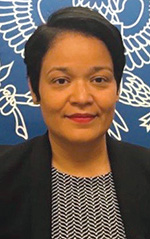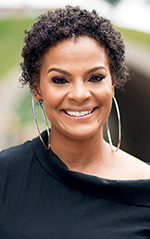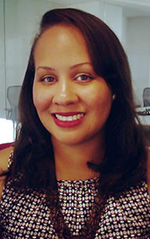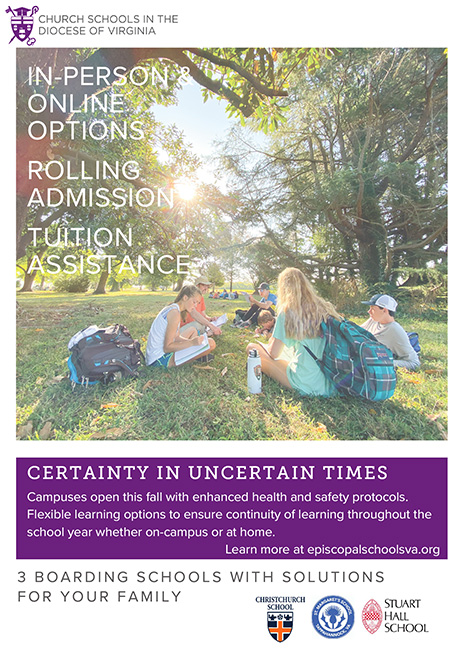Diversity at State: A Dream Deferred and a Collective Responsibility
Two fellowship programs are heralded for bringing people of color into the Foreign Service, but the new employees’ advancement is inhibited by institutional barriers.
BY ANA ESCROGIMA, LIA MILLER AND CHRISTINA TILGHMAN
Harlem
What happens to a dream deferred?
Does it dry up
like a raisin in the sun?
Or fester like a sore—
And then run?
Does it stink like rotten meat?
Or crust and sugar over—
like a syrupy sweet?
Maybe it just sags
like a heavy load.
Or does it explode?
—Langston Hughes
In the aftermath of nationwide protests following the death of George Floyd, the story of discrimination against one of our colleagues—Tianna Spears—horrified us all. Ms. Spears’ account of her treatment at the U.S.-Mexico border, and how she coped for two years, has led many at the State Department to ask how this could be so. By laying bare the lived realities of institutionalized racism and bias at the department that far too many officers experience, but do not discuss outside certain circles, Tianna’s story broke a cultural taboo, sparking an outpouring of concern for officers who have undergone similar experiences.
We should all be concerned about a State Department living in two worlds: with one set of officers who must cope with such experiences while navigating their careers, and another set who are unaware of or indifferent to such hardships. Our hope is that this moment in American history will inspire an honest conversation about what it means—and what it will take—to truly value and support diversity in our organization.
The national reckoning has catapulted one of State’s newest employee affinity groups, the Pickering and Rangel Fellows Association, to the forefront of advocacy on this issue. Founded in 2010, PRFA encompasses the more than 770 alumni who have joined the Foreign Service through the Thomas R. Pickering Foreign Affairs Fellowship program, established in 1992, and the Charles B. Rangel Fellowship program, launched in 2002. Once they complete the fellowship requirements, including graduate school and domestic and overseas internships, the fellows transition into alumni status and enter the Foreign Service through A-100. Department leadership, Congress and the American public all praise these programs’ success in recruiting talented, diverse candidates to join State.
At the same time, however, a concomitant shift of department culture to value and develop the basic competencies all employees need to thrive and progress in a multiracial environment has never taken place. In the Foreign Service, the burden of proving competency falls on the individual junior officers coming up the ranks, but the additional labor of navigating diversity at State should not fall on their shoulders alone. Over the years, the department has taken steps to expand the fellowships exponentially, but new fellows will succeed only if the department decides that ensuring their long-term career success—and the project of normalizing diversity at the State Department—is everyone’s responsibility.
Confronting Misperceptions
Until now, PRFA focused primarily on networking opportunities, professional development events and support for incoming fellows. At the same time, the association has always been an informal echo chamber for frustrations alumni feel about the challenges they experience in the Foreign Service—in particular, the widely held but wholly uninformed perception that the process for candidate selection “lowers the bar” to facilitate the entry of otherwise unqualified individuals of color. Fellows are routinely asked whether they are required to take and pass the Foreign Service Written Exam and the Foreign Service Oral Exam; yes, they are—and that is after they pass a highly selective application and interview screening process that mirrors the Foreign Service officer’s exam.
Another common misperception is that all fellows are people of color. In fact, the diversity sought by the fellowships encompasses geographic location in the United States, gender and economic hardship, as well as racial and ethnic background. Moreover, not all ethnic and racial minorities in the Foreign Service were recruited through the Pickering or Rangel programs (Tianna Spears, for example, was a consular fellow). Unfortunately, due to the misinformation regarding some of the fellowships, recipients often feel compelled to downplay their background as fellows when it should be a point of pride. In fact, some minorities in the Foreign Service feel compelled to share that they are not Pickering or Rangel Fellows.
There is a tendency in department culture to dispense automatic judgment based on inaccurate information, societal stereotypes and misconceptions.
This stigma does not exist for other preferential hiring programs, such as the Presidential Management Fellowship, the Boren Fellowship and Veteran’s Preference. It is less likely for alumni of those programs to encounter negative assumptions about their qualifications to enter the State Department. So, why is there a negative assumption associated with Pickering and Rangel alumni? The persistent pathology concerning these fellowships—and diversity, more broadly—affects how fellows are seen by their peers and supervisors, and often negatively affects their career progression and retention.
We welcome 7th-floor interest in increasing the size of the Pickering and Rangel Fellowship programs as recognition of the talented individuals they bring to the State Department and their significant policy contributions, and the diverse perspectives and experiences the programs bring to our organization. But as members of earlier fellowship cohorts who have witnessed the program’s expansion and retention issues since 2000, we believe that any future expansion should be accompanied by a concerted effort to address grave structural problems within the department—in particular, the department’s inability to retain at the senior levels the very talent it works so hard to recruit at entry level.
Taking On Prevailing Cultural Norms
Tianna Spears’ departure left many colleagues asking why those who have suffered traumatic experiences like hers do not speak up. We all know there are many positive and admirable elements in Foreign Service culture, such as esprit de corps, the ability to rally together to face a common challenge and a commitment to judging all on the basis of merit. Unfortunately, there is also a dark side to Foreign Service culture, which contributed to Tianna’s silence and that of others who endure hardship and abuse in isolation, and ultimately decide to depart.
Despite ongoing improvements in State’s leadership and training continuum for managers, there is still scant training available to prepare managers, or fellows, for how to communicate with American colleagues across cultures. Nor does the department systematically explain the fellowships and their purpose to its internal audience. Problems with the quality of management across the department compound the challenges for fellows of color. There is a tendency in department culture to dispense automatic judgment based on inaccurate information, societal stereotypes and misconceptions.
Given the level of investment in Pickering and Rangel Fellowships, it seems quite strange that the department does so little to protect its investment by retaining the talent it has worked so hard to attract.
Moreover, a culture of risk aversion buttresses the prevailing norm of “enduring” toxic bosses or work environments until they move on to greener pastures and being careful not to “rock the boat” or “make waves” to protect one’s “corridor reputation.” The implication that victims of discrimination are responsible for their situations and the insufficient numbers of diverse officers at individual posts also help to perpetuate the status quo.
These challenges isolate many minority officers. Many who ultimately decide to leave the State Department feel they are dealing with these hardships alone, on top of navigating a challenging career. Fixing these issues goes well beyond increasing the number of entry-level fellows. The Diversity and Inclusion Strategic Plan takes a step in the right direction, but its execution must be informed by addressing some of the cultural challenges we have outlined here.
Retention: The Elephant in the Room
The State Department is an amazing place to work for many reasons. As such, it will never have to worry about finding qualified candidates who want to join its prestigious ranks. Yet there is still very limited understanding in broader American society of what the department is and what a career with State might look like. This is one of the primary reasons the Pickering and Rangel Fellowship programs were created: to expose Americans who might not otherwise contemplate a career in foreign affairs to the Department of State.
Given the level of investment in these programs, it seems quite strange that the department does so little to protect its investment by retaining the talent it has worked so hard to attract. While diverse officers do receive informal mentoring, there is no mechanism by which the department captures and understands their experiences and addresses them through training or other support for program alumni. In this gap, PRFA peer networking has helped foster resilience among officers facing discrimination that they believe cannot be talked about in the open. But the efforts of an affinity group cannot possibly be expected to make up for State’s institutional failures.
The PRFA cannot be a stand-in for the lack of diverse officers in senior leadership roles who might otherwise serve as mentors and sponsors for diverse officers navigating the intersection of discrimination and an already-opaque assignments process. Nor can PRFA establish department-wide training to strengthen all employees’ abilities to work fairly and effectively in a multiracial professional environment.
PRFA peer networking has helped foster resilience among officers facing discrimination. But the efforts of an affinity group cannot possibly be expected to make up for State’s institutional failures.
Employees of color cannot gain a firm foothold and advance successfully in an organization that does not fully recognize them or their contributions. We must be honest and take a hard look at the organization we serve. The department has failed its employees of color by not fully embracing and institutionalizing diversity and inclusion. During this watershed moment, PRFA continues to address systemic racial disparities within the department and looks forward to working with department leadership and other employee affinity groups to address these concerns.
Where Do We Go from Here?
Despite these shortcomings, there is space to remain hopeful. We see positive strides from our leadership. On June 8, Deputy Secretary of State Stephen Biegun met with three employee affinity groups representing Black Americans and employees of color. In this meeting PRFA shared a list of recommendations to cultivate an inclusive workplace, focused on three themes:
- Create accountability mechanisms to curtail toxic and discriminatory behavior.
- Improve retention by institutionalizing a support system within the Global Talent Management Bureau and counseling services through the Office of Continuity Services to support employees of color.
- Promote diverse officers’ career development to build a pipeline for mid-level officers to reach the senior ranks.
The Deputy Secretary affirmed his commitment to address persistent disparities within the department, including regular engagement and partnership with these organizations and other affinity groups. This dialogue was a crucial step in a journey that will involve many more steps. The department must take significant steps to shift its organizational culture and genuinely embrace diversity and inclusion. This will require adequate staffing and funding resource allocation.
Yet it is not solely the State Department’s responsibility or that of the affinity groups to foster a diverse, inclusive workplace. Our white colleagues also have a major role in this effort, for allyship is critical to ensure employees of color are treated equitably, with dignity and respect. Consider this your call to action. Small changes in behaviors and perspectives across the department will translate into systemic change.
Here are some basic questions we can all be asking ourselves: How am I supporting my colleagues of color? If I am in a leadership position or one of influence, am I vocally supporting their work and suggesting their name(s) for career-enhancing opportunities? In meetings, do I ensure employees of color are present at the table and contribute, and do I value their input? When an employee of color engages in a meeting, do I aim to amplify their ideas and give credit to that person? Do I call out toxic or discriminatory behavior in the workplace? Have I taken time to learn about systemic racism to gain a greater understanding of how it affects our colleagues of color? Does my team reflect racial/ethnic diversity? Am I hiring racially and ethnically diverse candidates? Are employees of color working on priority and substantive policy issues, like white colleagues on my team?
These questions will help to unpack the biases and perceptions that can lead to a devaluation of employees of color and their contributions. The shared experiences of employees of color—including enduring toxic behaviors in the workplace, such as being second-guessed, undermined, harassed and deemed unqualified—indicates there is a widespread problem of discriminatory behaviors and perceptions within the State Department. Only action will combat systemic racial disparities. How will you help turn the tide and achieve our organization’s dream of diversity and inclusion?
Read More...
- “Diversity and Cultural Competence: Mission Critical Elements of U.S. Foreign Policy,” by Ernest J. Wilson III, FSJ, May 2013
- “Achieving Full Diversity in the Foreign Service,” by Ajit Joshi, FSJ, November 2004
- “Defining Advantage: Fairness and the Meritocracy,” by John P. Owens, October 1991






